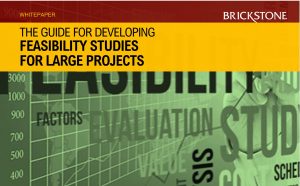Feasibility Studies for Projects
Feasibility Studies for Projects
At the early stages of a Greenfield project, a Conceptual Study is done to analyze the possibilities and benefits of a potential project. This is an economical way for management to do a Preliminary Evaluation of a potential project.
The next step, a Pre-feasibility study, is usually carried out ahead of a Feasibility Study to provide an economic assessment of a project which has already been determined to have a high potential for development. Basic Engineering is then developed to set up the project. Changes to the project concept occur during this phase which lasts until equipment is procured.
As the name implies, a feasibility study is used to determine the viability of a project. The objective of such a study is to ensure a project is legally and technically feasible and economically justifiable. It tells us whether a project is worth the investment by its promoters
Feasibility studies are useful to businesses in many ways. Some of the reasons organizations conduct feasibility studies are as follows:
- Not every project is doable based on the risk of the environment.
- Not every project should be taken up. This will engage otherwise useful resources and block their use on other tasks.
- Not every project makes effective use of the resources of an organization
But What is a Feasibility Study?
In simple terms, a feasibility study involves making a judgment call on whether a project is doable. The two criteria to judge feasibility are cost required and value to be delivered.
A well-designed feasibility study should offer a historical background of the business or project, a description of the product or service, accounting statements, details of operations and management, marketing research and policies, financial data, legal requirements and tax obligations. Generally, such studies precede technical development and project implementation.
A feasibility study evaluates the project’s potential for success; therefore, perceived objectivity is an important factor in the credibility of the study for potential investors and lending institutions. [Source: Wikipedia]
Five Areas of Project Feasibility Study:
-
Technical Feasibility
Assessment is centered on the technical resources available to the organization. It helps organizations assess if the technical resources meet capacity and whether the technical team is capable of converting the ideas into working systems. Technical feasibility also involves the evaluation of the hardware and the software requirements of the proposed system.
-
Economic Feasibility
Helps organizations assess the viability, cost, and benefits associated with projects before financial resources are allocated. It also serves as an independent project assessment, and enhances project credibility, as a result. It helps decision-makers determine the positive economic benefits to the organization that the proposed system will provide, and helps quantify them.
This assessment typically involves a cost/ benefits analysis of the project.
-
Legal Feasibility
Investigates if the proposed system conflicts with legal requirements like data protection acts or social media laws.
-
Operational Feasibility
This involves undertaking a study to analyze and determine whether your business needs can be fulfilled by using the proposed solution. It also measures how well the proposed system solves problems and takes advantage of the opportunities identified during scope definition. Operational feasibility studies also analyze how the project plan satisfies the requirements identified in the requirements analysis phase of system development.
To ensure success, the desired operational outcomes must inform and guide design and development. These include such design-dependent parameters such as reliability, maintainability, supportability, usability, disability, sustainability, affordability, and others.
-
Scheduling Feasibility
This is the most important for project success. A project will fail if not completed on time. In scheduling feasibility, we estimate how much time the system will take to complete, and with our technical skills, we need to estimate the period to complete the project using various methods of estimation.
Download this feasibility study format guide to assist you in your project.
How Brickstone Can Help?
Brickstone is a Research-based Advisory, Development Management and Asset Management firm helping Sponsors of Large Scale Asset backed projects with the overall objective of ensuring the “bankability” and protection of the long term asset value of these projects.
We focus on Agri-Industrial and Heavy Manufacturing, Real Estate and Hospitality, Energy and Natural Resources, Power and Renewable, Transport Infrastructure and Special Situation Advisory
Our specialist Project Finance Team will help build tailored financial models conducting analysis thereof in conjunction with our Economic and Market Research Experts. This provides your clients with precise bankable projections calculating all the capita investment requirements, the cash flow analysis and the rate of returns for these developments.
Why not contact us to make your Project Happen
Our advisors and consultants would be able to schedule an online meeting with you to discuss your project with the overall objective of seeking ways to achieve the “bankability” and protection of the long term asset value of your project.






